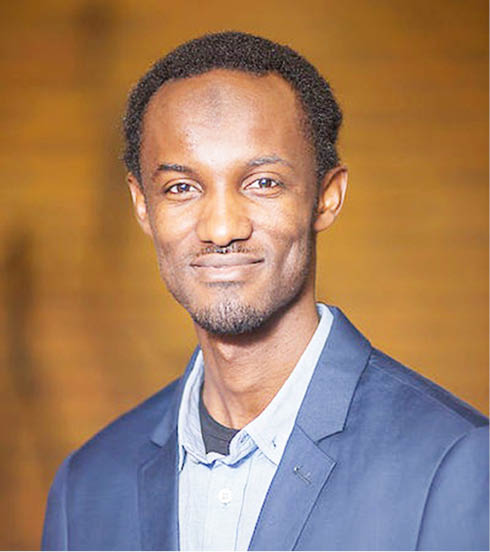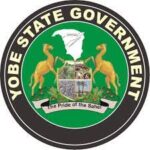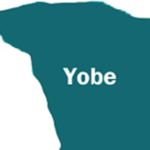Dr. Mahmoud Bukar Maina is a Nigerian research fellow at the School of Life Sciences, University of Sussex in the United Kingdom (UK) researching what causes or sustains some forms of brain diseases. He is the Outreach Coordinator of TReND in Africa – a Non-Governmental Orgarnisation (NGO) – that promotes scientific research and training in Africa. In this online interview, he speaks on the bioscience laboratory he is setting up in home state, Yobe, among other issues.
Why are you setting up a bioscience laboratory in Yobe State?
Nigeria ranks number seven in the list of countries by population and among the top with a high death rate from diseases, yet little research is done within the country to address these problems.
- 56-year-old Kaduna’s only textile coy sacks 300 staff
- Nigerian stocks head for best annual run since 2013
We heavily depend on research interventions from the West.
Taking the COVID-19 pandemic as an example, with a population of about 200 million as of December, 2020, less than 0.5 per cent of Nigeria’s population has been tested for COVID-19.
This is partly because only a few laboratories in Nigeria have the necessary equipment for conducting COVID-19 testing.
Thus, in addition to giving back to my state and country, I decided to establish this lab at Yobe State University to provide the infrastructure that will permit us to conduct research and find solutions to local and global medical science problems, as well as train the younger ones to develop competence in this area.
When will it be ready for use?
I am still sending equipment for the lab.
Together with some colleagues from TReND in Africa and the UK, we plan to install the lab equipment in 2021 and train people to use them.
However, the website for the lab is already up – https://biortc.com/
What would be the scope and kind of work that will be done in the laboratory?
I will personally be leading work on areas of brain diseases in the lab.
However, the work scope in the lab will depend on the type of researchers who show interest in using the different equipment; their passion and their commitment to research.
The types of equipment can help us understand some aspects of diseases such as malaria, kidney diseases and other infectious diseases.
I have had meetings with the Chief Medical Director (CMD) of the Yobe State University Teaching Hospital on ways to fully utilise this opportunity for translational research.
However, I must warn that without passionate and committed researchers and support, this won’t happen because research needs commitment and perseverance.
Often, it takes years and the use of multiple types of equipment and approaches to fully address scientific problems.
This is why researchers are yet to eradicate diseases like malaria and are also yet to find an effective treatment for brain diseases like dementia.

How would a laboratory such as this affect science and research in Nigeria?
I recently led a research work published in the European Journal of Neuroscience.
In this work, we found that only eight per cent of brain research publications from Nigeria used modern, advanced techniques.
This clearly shows that in addition to the lack of funding, the lack of a good lab with advanced equipment limits Nigerian scientists from having a significant impact on the global stage.
The lab in Yobe hopes to tackle this problem by enabling any exceptional and passionate Nigerian scientist to undertake cutting-edge research.
We also hope to collaborate with institutions within and outside Nigeria and organise workshops and conferences to boost science skills acquisition.
My vision is for the lab to become a centre of excellence in research and training in biomedical sciences; helping to solve local and global health problems through scientific research.
What other efforts have you made in this regard?
Since 2013 when I joined TReND in Africa, I have engaged in many activities to promote public understanding of science and train the next generation of scientists.
I have coordinated such activities across Africa.
In 2018 and 2019, I founded two organisations to boost these efforts in Nigeria, namely, Science Communication Hub Nigeria (www.SciComNigeria.org) and African Science Literacy Network (www.AfricanSciLit.org).

Moreover, through TReND, together with a few colleagues, we established a modern laboratory at the Gombe State University in 2015/2016.
I have also sent equipment to Sudan, Malawi and other places in Nigeria, including the University of Maiduguri and the University of Lagos to equip their research laboratories.
This project obviously does not come cheap; so how are you funding it?
A lab is like a car; one has to buy petrol and service it regularly otherwise it will break down.
By next year, when I hope to equip the lab, the equipment cost will come to about N100 to N150m.
I expect the government to similarly invest in the lab.
This can be by providing constant power, water, internet and some funds for research.
Without these, the entire lab project won’t be successful.
I have had meetings with the Vice Chancellor and Registrar of the Yobe State University, who have expressed strong support and commitment.
Although I have not had the opportunity to meet and discuss this with the state governor, I am sure he will give it his full support given his plans for education in Yobe State.
However, I also hope that through philanthropists, local grant agencies such as TETFund and international organisations, we will have the opportunity of further funding the laboratory.


 Join Daily Trust WhatsApp Community For Quick Access To News and Happenings Around You.
Join Daily Trust WhatsApp Community For Quick Access To News and Happenings Around You.


